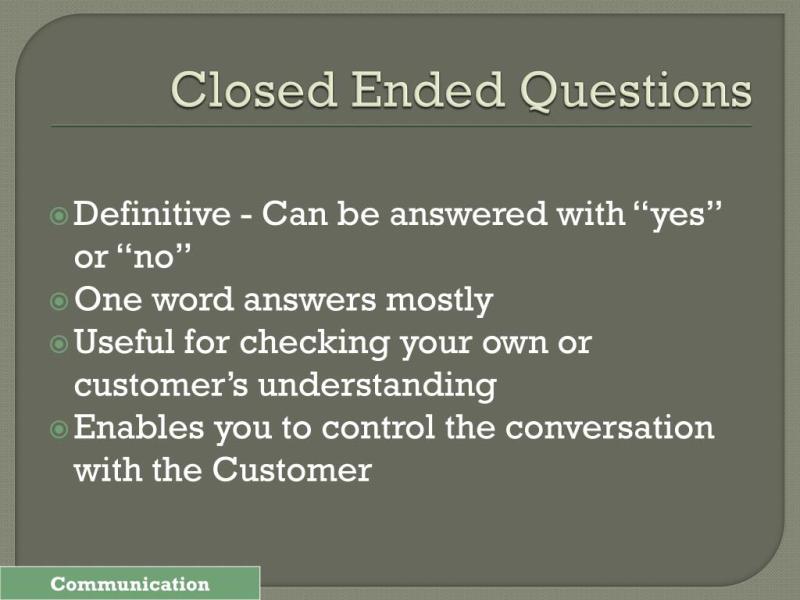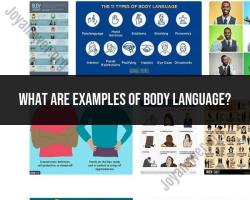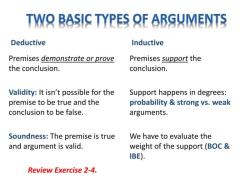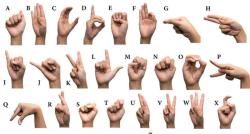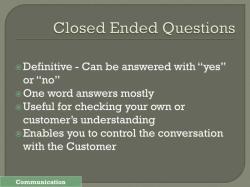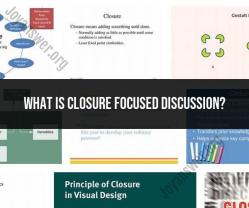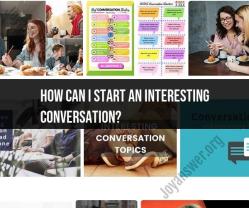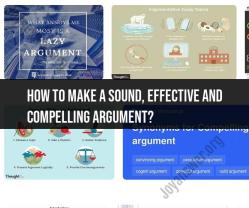What are close ended questions?
Close-ended questions are defined queries that typically prompt short, specific answers, often limited to "yes" or "no" or selecting from predefined options. These questions are designed to gather precise information, facts, or specific details.
Characteristics of close-ended questions include:
Limited Answer Choices: They offer a set of predetermined options for respondents to choose from or require a brief, concise answer.
Clear and Direct: They are straightforward and focus on a particular aspect, aiming to elicit a specific response without room for extensive elaboration.
Objective Responses: These questions seek objective or factual information rather than opinions, feelings, or detailed explanations.
Examples of close-ended questions:
- "Did you attend the meeting yesterday?" (Yes/No)
- "Which color do you prefer: red, blue, or green?"
- "Have you used this product before?" (Yes/No)
- "On a scale of 1 to 5, how satisfied are you with the service? (1 being the lowest, 5 being the highest)"
Close-ended questions are valuable in surveys, interviews, or questionnaires when researchers or interviewers seek specific, quantifiable data or when they want to efficiently gather information without delving into detailed explanations or subjective opinions. However, they may limit the depth of response and might not capture nuances or diverse perspectives compared to open-ended questions. Often, a combination of both close-ended and open-ended questions can provide comprehensive insights in research or data collection endeavors.
Characteristics and Purpose of Close-Ended Questions in Communication
Close-ended questions are those that elicit specific and limited responses, typically in the form of a single word, phrase, or short sentence. They are often used to gather factual information, confirm details, or obtain specific opinions.
Key Characteristics of Close-Ended Questions:
Limited Response Options: They restrict the range of possible answers, guiding the respondent towards a specific response.
Focused Information Gathering: They aim to obtain precise and relevant information on a particular topic.
Clarity and Directness: They are phrased clearly and directly, leaving little room for ambiguity or misinterpretation.
Purpose of Close-Ended Questions:
Gather Factual Information: They are effective in collecting specific facts, figures, or details.
Confirm Understanding: They can be used to verify information or ensure that a message has been understood correctly.
Gauge Opinions: They can help assess attitudes, preferences, or beliefs on a particular issue.
Provide Structure and Direction: They can help guide conversations and maintain focus on specific topics.
Control Response Length: They can limit the length of responses, making them suitable for time-constrained situations.
Constructing Effective Close-Ended Questions for Specific Goals:
Clarity and Specificity: Formulate clear and specific questions that address the desired information.
Avoid Ambiguity: Eliminate ambiguity and ensure the question has a single, clear interpretation.
Consider the Respondent's Knowledge: Tailor the question to the respondent's level of knowledge and understanding.
Neutral Language: Use neutral and unbiased language to avoid influencing the respondent's answer.
Appropriate Length: Keep questions concise and to the point, avoiding unnecessary complexity.
Applications of Close-Ended Questions in Various Contexts:
Surveys and Research: Close-ended questions are widely used in surveys and research to gather quantitative data and assess trends or patterns.
Interviews: They are employed in interviews to obtain specific information, confirm details, or gauge opinions.
Customer Service: They are used in customer service interactions to gather information about issues, resolve problems, or assess customer satisfaction.
Medical Settings: They are used in medical settings to gather patient history, assess symptoms, or monitor treatment progress.
Education and Training: They are used in education and training to assess student understanding, check for comprehension, or gauge engagement.
In summary, close-ended questions are valuable tools for communication, enabling focused information gathering, structured conversations, and effective data collection. By crafting clear, concise, and unbiased questions, we can effectively utilize close-ended questions to achieve our desired communication goals.
